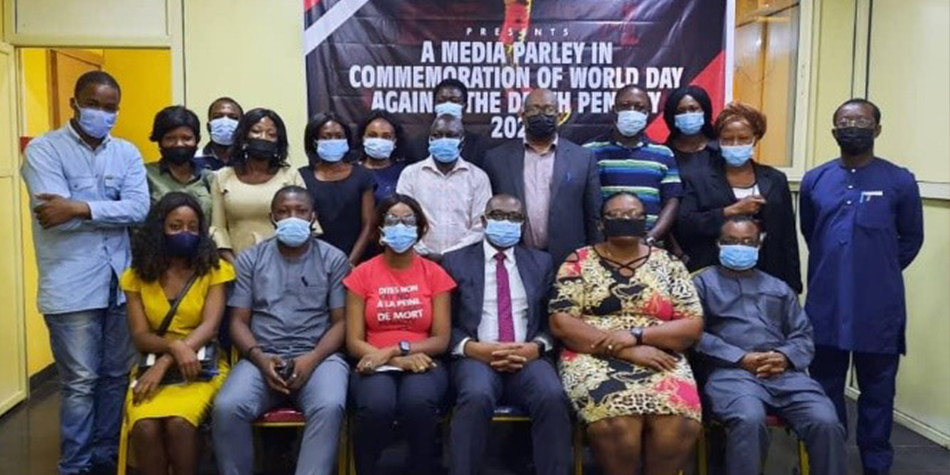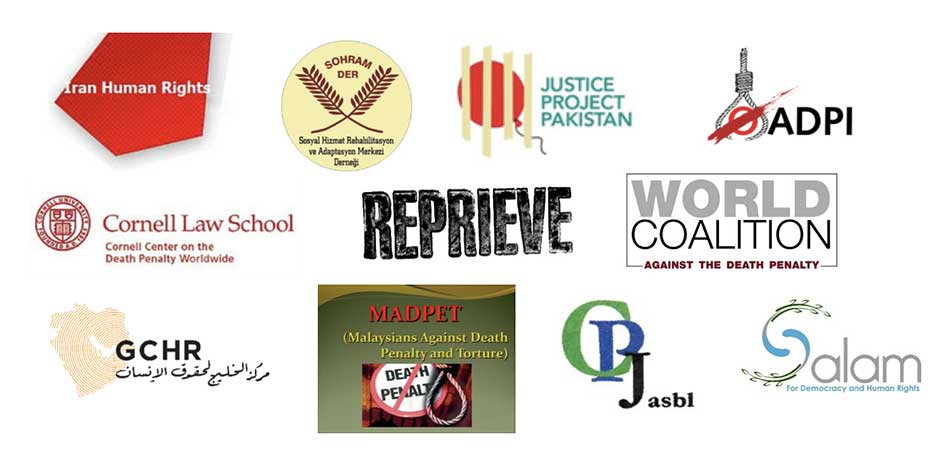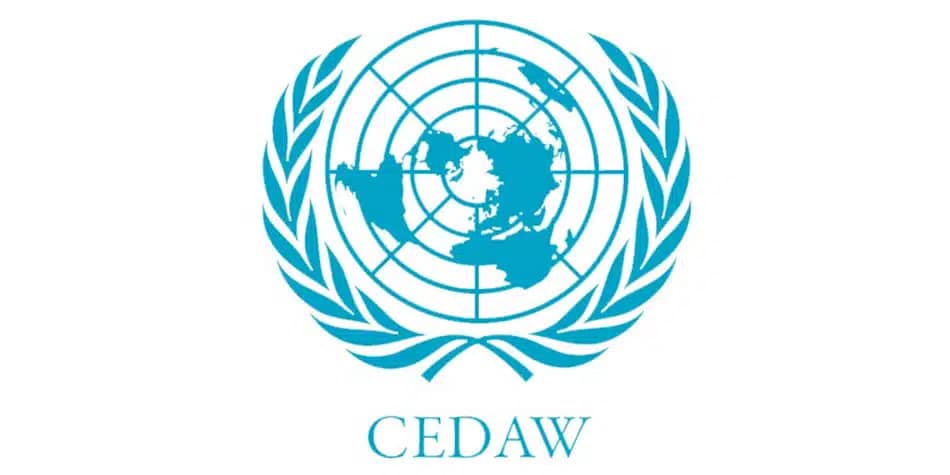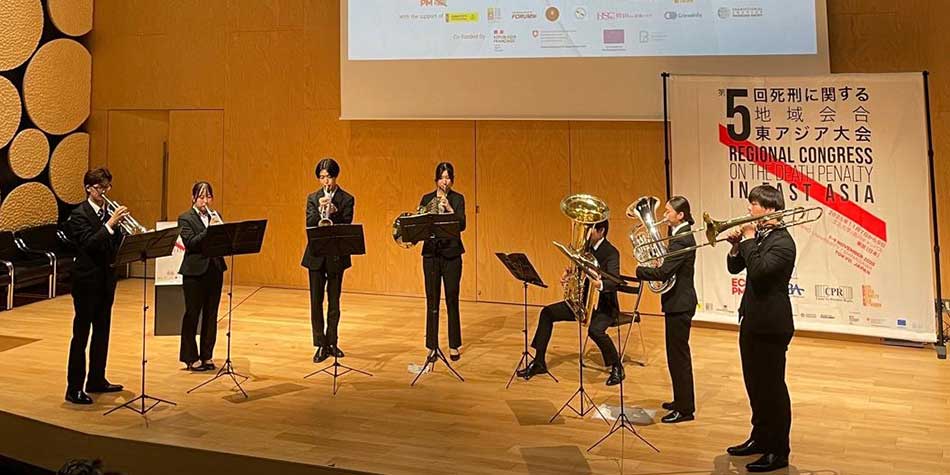
Women Sentenced to Death Showcased on the 19th World Day Against the Death Penalty
World Day
With the theme “Women sentenced death: an invisible reality”, the 19th World Day Against the Death Penalty aimed to highlight the issues faced by women who are sentenced to death, executed, pardoned or exonerated around the world.
With the theme “Women sentenced death: an invisible reality”, the 19th World Day Against the Death Penalty aimed to highlight the issues faced by women who are sentenced to death, executed, pardoned or exonerated around the world. Most women facing the death penalty are exposed to gender-based discrimination, but also discrimination based on other elements of identity such as age, sexual orientation, or ethnicity. These intersecting forms of discriminations can have a significant impact on sentencing, particularly when a woman’s behavior does not fit the social norms imposed on their gender or when key mitigating factors, such as sexual and gender-based violence, are not taken into account.
On the occasion of the World Day, actors in the abolitionist movement mobilized by publishing reports and studies on women under sentence of death to increase knowledge on the issue, by organizing educational and cultural activities to raise awareness on the topic and by taking a stand for the abolition of the death penalty. This article presents just a sample of the hundreds of events that were organized for this celebration.
Asia and the Middle East: Raising Awareness about Women and the Death Penalty through Culture and Research
In Pakistan, a cultural approach has been used to raise awareness about the death penalty. Justice Project Pakistan launched the digital campaign “This is (not) a Game” which invites the public to think on the issue through the interactive experience of a woman facing the death sentence of her husband. As part of the campaign, an online game was developed and interactive theater performances were held in several cities across the country. The Human Rights Commission of Pakistan also organized a theatre performance on the inviolability of the right to life and took a stand against the death penalty in a statement issued for the World Day.
In Iran, Abdorrahman Boroumand Center in collaboration with Monash University and Eleos Justice published two interviews with Narges Mohammadi on the death penalty in Iran (available here and here). Iran Human Rights dedicated the study “Women and the Death Penalty in Iran: a 12 Year Analysis” to the situation of women on death row in Iran.
In Indonesia, the Institute for Criminal Justice Reform also took the World Day as an opportunity to document the situation of women on death row, a minority of the prison population. The report “The Overlooked, She in the Vortex of Death Penalty”, on the situation of women on death row, was published for the World Day and presented during a webinar. LBH Masyarakat organized a webinar dedicated to migrant women facing the death penalty in Indonesia.
Africa: Raising Awareness of the Death Penalty among Target Groups
In several countries, abolitionist organizations have organized activities to raise awareness and train different groups of the population. In Sierra Leone, the Society for Human Rights and Development Organization organized activities in several schools in Freetown to raise awareness about the death penalty. In Cameroon, Droits et Paix invited lawyers of women facing the death penalty to a workshop to reflect on and raise awareness of the specific issues facing these women. In Nigeria, the Legal Defence and Assistance Project (LEDAP) and the Human Rights Law Center (HURILAWS) organized a workshop for journalists to inform them about the situation of people sentenced to death and the need to abolish capital punishment.
In Morocco, the exhibition Le droit de vivre, which brings together the works of thirteen Moroccan artists, was inaugurated at the Museum of Art and Culture in Marrakech and a book also entitled Le droit de vivre was published. This book gathers the texts of thirty-seven Moroccan writers and intellectuals defending the abolition of the death penalty in Morocco and the reproductions of the works presented in the exhibition.
America: Testifying and Documenting the Issue of Women on Death Row
In the United States, several organizations have invited women on death row to testify in order to highlight their stories and raise awareness. Death Penalty Focus hosted a webinar on women on death row in which Sabrina Butler-Smith, Sunny Jacobs, and Debra Milke, three women who have spent years on death row, testified. Witness to Innocence invited Sabrina Butler-Smith to share her story in a webinar held in conjunction with the release of the film “It Could Happen To You.”
In the Caribbean, Greater Caribbean for Life discussed the discrimination and inequality faced by women on death row during a webinar. The organization also participated in several radio programs to raise awareness about this issue.
Finally, the Cornell Center on the Death Penalty Worldwide published several studies, including the report “No One Believed Me: A Global Overview of Women Facing the Death Penalty for Drug Offenses” written with Harm Reduction International on women sentenced to death for drug offenses. The release of this report was also the subject of a side event at the 48th session of the Human Rights Council.
In the Media, Taking a Stand Against the Death Penalty
The mobilization for the 19th World Day also took place in the media. On social networks, several thousand people and organizations from all over the world expressed their support for the abolitionist cause with the hashtag #NoDeathPenalty. The World Coalition led a 10-day campaign on Twitter, Facebook and Instagram to present the issues of “Women sentenced to death: an invisible reality”.
Several national human rights institutions, such as the National Human Rights Commission of Mexico and the Commission on Human Rights of the Philippines, declared their opposition to the death penalty in statements issued on the World Day. The human rights ambassadors of eleven European states also issued a joint statement on this occasion. In a joint statement, the European Union and the Council of Europe reiterated their position against the death penalty and their commitment to its abolition. The Working Group on the Death Penalty and Extrajudicial, Summary or Arbitrary Executions in Africa of the African Commission on Human and Peoples’ Rights issued a statement on the theme of the World Day and the situation of the death penalty in States Parties to the ACHPR. Several abolitionist States, such as Australia, Canada, Belgium, France, Germany, Slovenia and Italy recalled their commitment to the abolition of the death penalty.
picture: Journalists participating in the media parley in Lagos © LEDAP, HURILAWS







